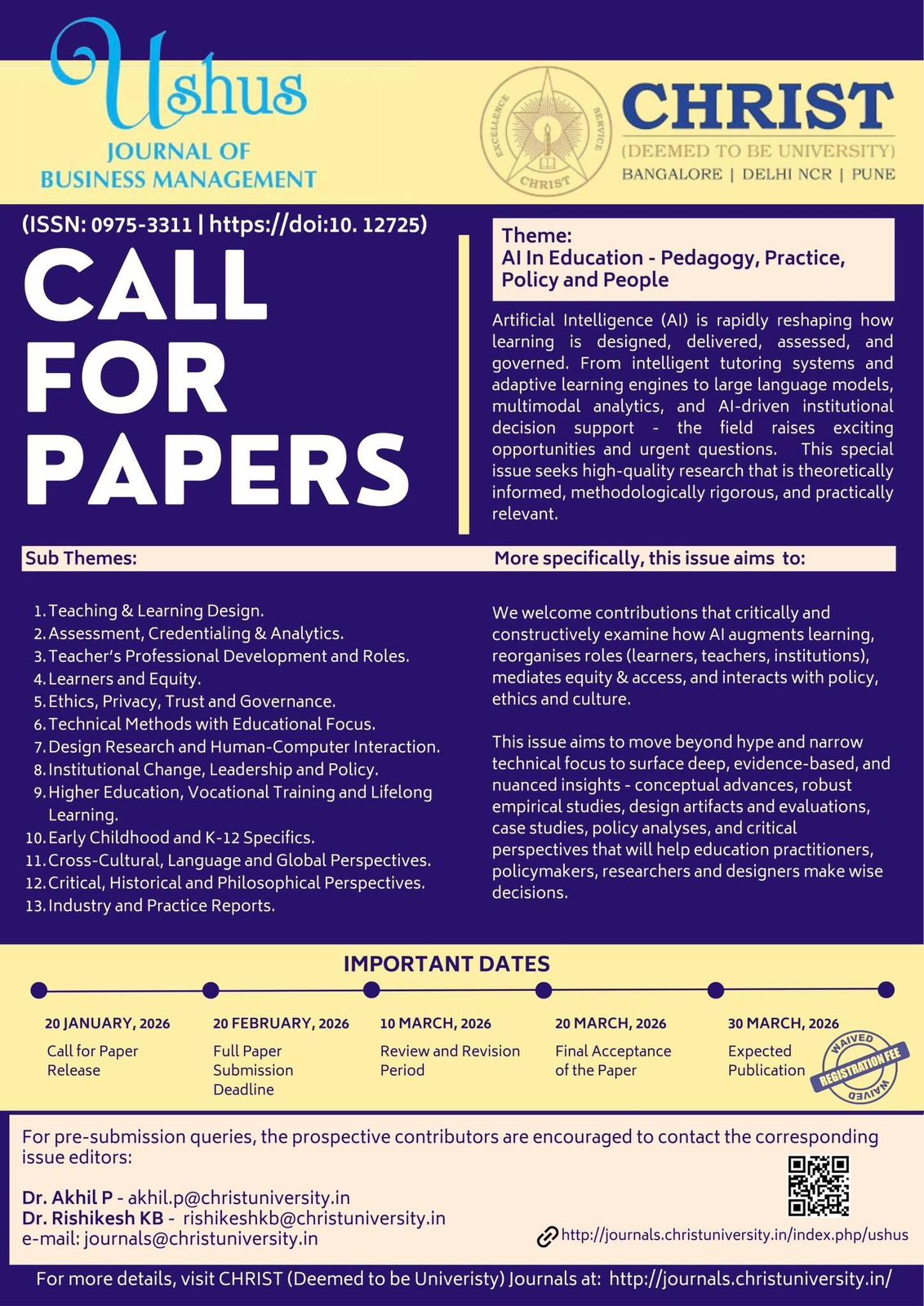Editorial
DOI:
https://doi.org/10.12725/ujbm.30.0Abstract
Editorial The current issue of Ushus-Journal of Business Management discusses (UJBM) themes very pertinent to the times—organizational culture and agility of public sector enterprises, corporate governance performance and enterprise risk in India, strategies for retaining the millennial workforce to reduce attrition, the effectiveness of in-app advertisements, and the day-of-the-week-effect anomaly in stock trading. The globalization and liberalization of the 1990s brought about extreme pressure on the hitherto protected public sector enterprises of India to take on competition. Madhumita Chatterji and M H Sharieff, in their article, attempt to study the organizational culture of the PSEs that was developed over a period of five decades, and its ability to cope with changes. This study is empirical with cross-sectional design, using convenience sampling and a self-administered questionnaire.Sajit Jacob investigates the association between corporate governance performance and enterprise risk in India. This study helps to rate the progress of enterprise risk governance reforms, and plan further reforms. It comes up with data-based results useful for investors, policy makers, stakeholders, and management. J Anitha and M Aruna study the nature of millennials who are a dominant workforce in the current times, and suggest retention strategies for organizations that are in a dire need to bring down attrition. This paper identifies the significant enablers towards retention. The study is descriptive and causal, comprising data of Gen Y employees in IT and manufacturing sectors.In our times when digital advertising is growing by geometric progression, Jay P Trivedi studies how effective in-app advertising is to influence the purchasing decisions of Gen Y youngsters. Descriptive research design is used. Statistical analysis is done using Cronbach alpha, Factor analysis and structural equation modelling. The study highlights the importance of entertainment, informativeness and credibility in forming positive brand attitudes.The day-of-the-week effect, one of the most prominent calendar anomalies in market efficiency hypothesis, always leaves investors worrying about which day of the week is the best day for the trade.
Downloads
Published
How to Cite
Issue
Section
License

This work is licensed under a Creative Commons Attribution-NonCommercial-NoDerivatives 4.0 International License.



